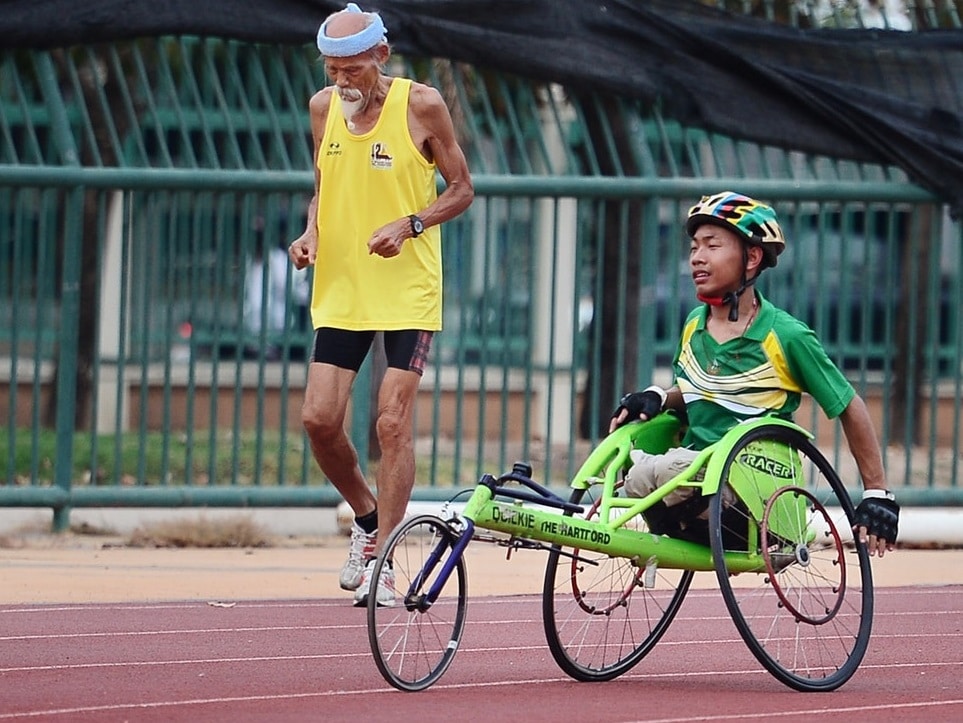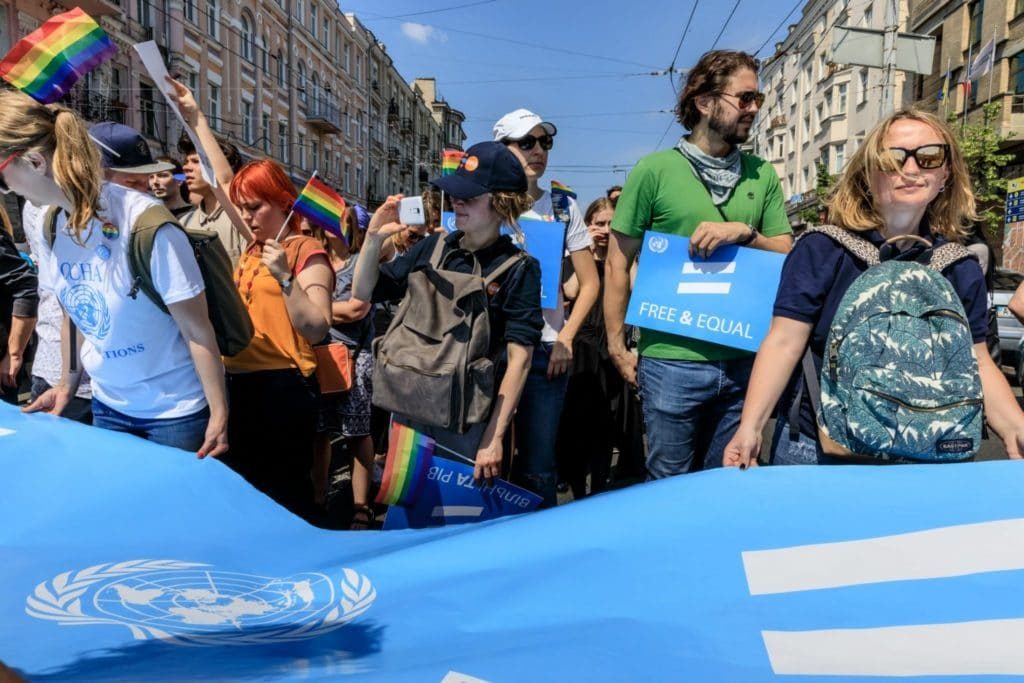Health and social care
The right to enjoy the highest attainable standard of health (right to health) is universally recognised. It is a vital pre-requisite for human wellbeing, life in dignity and sustainable development. According to the UN Secretary-General’s 2020 policy paper on COVID-19 and human rights, a health crisis of this magnitude has a critical adverse impact on… Continue Reading Health and social care
Read MorePrivatisation
Privatisation of public facilities, services and corporations is widely implemented as a sound and efficient economic management approach. Privatisation can take many forms including ownership, financing, management, and service delivery, and can be achieved through, for instance, public-private partnerships, divestiture or outsourcing of public service delivery. According to the Privatisation Barometer’s 2015/16 Report, governments around… Continue Reading Privatisation
Read MorePersons with disabilities
Persons with disabilities’ human rights, including their right to decent work, are protected in a wide range of international human rights instruments. Disability results from the interaction between persons with impairments and attitudinal and environmental barriers that hinders their full and effective participation in society on an equal basis. There is a need to create… Continue Reading Persons with disabilities
Read MoreDevelopment finance institutions
Mobilising financial resources to achieve sustainable development has been a priority for the international community over the last decades. Development finance institutions (DFIs), including national development banks (e.g. the Netherlands Development Finance Company, the Dutch Investment Fund for Developing Countries), multilateral development banks (e.g. the World Bank Group, the Inter-American Development Bank, the Asian… Continue Reading Development finance institutions
Read MoreEnvironment & climate change
From a human rights perspective, environmental protection and climate change mitigation and adaptation are crucial as the consequences of global warming and nature’s degradation can threaten livelihoods; food production; human, water and ecosystem security; land tenure and resource use; and health. While the global climate crisis and environmental degradation pose significant risks for all people… Continue Reading Environment & climate change
Read MoreLand
Several international human rights instruments link land issues to the enjoyment of specific substantive human rights, including non-discrimination and the rights to adequate housing, food, water, health, work, cultural integrity, freedom of opinion and expression, and self-determination, as well as the right to participate in public affairs and cultural life. As indicated in the ILO Convention… Continue Reading Land
Read MoreIndigenous Peoples
The UN has noted that: “Indigenous peoples are inheritors and practitioners of unique cultures and ways of relating to people and the environment. They have retained social, cultural, economic and political characteristics that are distinct from those of the dominant societies in which they live. Despite their cultural differences, indigenous peoples from around the world share… Continue Reading Indigenous Peoples
Read MoreEquality & non-discrimination
Equality and non-discrimination are core human rights concepts. When related to the field of employment, non-discrimination and equal opportunity are rooted in the principle that all decisions made at the workplace are based on the ability of the individual to do the job in question without regard to personal characteristics that are unrelated to the… Continue Reading Equality & non-discrimination
Read MoreThe 2030 Agenda for Sustainable Development
In 2015, the UN General Assembly unanimously adopted the 2030 Agenda for Sustainable Development (the 2030 Agenda). The 2030 Agenda established 17 Sustainable Development Goals (SDGs), containing 169 global targets and 232 indicators to measure progress in implementation, and a set of follow-up and review principles and mechanisms. The 2030 Agenda seeks to achieve transformative… Continue Reading The 2030 Agenda for Sustainable Development
Read MoreData protection & privacy
Privacy is a fundamental human right included in a range of international and regional human rights instruments. This right is often framed in general terms within the right to respect for private or family life, protection of the home and non-interference with correspondence. Privacy is not an absolute right and limitations can be introduced provided… Continue Reading Data protection & privacy
Read MoreState Owned Enterprises/ Public Private Partnerships
In accordance with UN Guiding Principles on Business and Human Rights, Principle 4, states have to ensure that business enterprises that they own, control, or are closely related to them respect human rights. The OECD Guidelines on Corporate Governance of State Owned Enterprises (SOEs) define SOEs as “any corporate entity recognised by national law as… Continue Reading State Owned Enterprises/ Public Private Partnerships
Read MoreWorkers’ rights
Workers’ rights encompass a large array of human rights from the right to decent work and freedom of association to equal opportunity and protection against discrimination. Specific rights related to the workplace include health and safety in the workplace and the right to privacy at work, amongst many others. Given the relationship between workers, employers,… Continue Reading Workers’ rights
Read MoreTrade
The international trade system consists of thousands of unilateral, bilateral, regional, and multilateral rules and agreements among States. Trade agreements aim to ensure businesses can expand their operations more easily in the global marketplace through several opportunities, such as reduced trade barriers or stronger intellectual property protection. As the UN Human Rights Office of… Continue Reading Trade
Read MoreTaxation
Taxes – compulsory contributions by individuals and entities to local, regional and state governments – are primarily aimed at raising resources for government expenditures. They also serve other purposes, including redressing inequalities in society and deterring or encouraging certain behaviours, notably consumer choices deemed harmful to, for example, their own health or to the environment.… Continue Reading Taxation
Read MoreSupply chains
The “supply chain and value chain concepts are related but distinct concepts”, although they are often used interchangeably in business and human rights discourse. As the Danish Institute for Human Rights (DIHR) notes: “A company’s ‘supply chain’ encompasses the resources, activities, and business relationships that feed into a product or service. It traditionally covers ‘upstream’… Continue Reading Supply chains
Read MoreSmall & medium-sized enterprises
Small and Medium Enterprises (SMEs) are defined as non-subsidiary, independent firms which employ less than a given number of employees. This number varies between countries, with the most frequent upper limit being 250 employees, as in the European Union. However, some countries set the limit at 200 employees, while the United States uses 500 employees. Small firms are… Continue Reading Small & medium-sized enterprises
Read MorePublic procurement
Public procurement refers to the process by which public authorities, such as government departments or local authorities, purchase work, goods or services from suppliers. The scope of goods and services bought by public authorities ranges widely, from large-scale infrastructure and urban development projects, to the acquisition of complex items such as weapon systems, to commissioning of essential… Continue Reading Public procurement
Read MorePolicy coherence
Policy Coherence is defined by the OECD as the systematic promotion of mutually reinforcing policy actions across government departments and agencies creating synergies towards achieving the agreed objectives. Globally, the principle of policy coherence for development (PCD) has become generally accepted. For example, the OECD Policy Coherence for Development agenda, European Union Policy Coherence for Development, embedded… Continue Reading Policy coherence
Read MoreOECD National Contact Points
The OECD Guidelines for Multinational Enterprises on Responsible Business Conduct (OECD Guidelines) are a set of recommendations addressed by states adhering to the OECD Declaration on International Investment and Multinational Enterprises to multinational enterprises operating in or from these States. Since the 2000 revision (the latest revision was in 2023), the OECD Guidelines mandate that adhering governments set up… Continue Reading OECD National Contact Points
Read MoreNon-judicial grievance mechanisms
Grievance mechanism are defined by the UN Guiding Principles on Business and Human Rights (UNGPs) as “any routinized, State-based or non-State-based, judicial or non-judicial process through which grievances concerning business-related human rights abuse can be raised and remedy can be sought.” Commentary to Guiding Principle 25 notes that state based judicial or non-judicial grievance mechanism (NJGM) should form… Continue Reading Non-judicial grievance mechanisms
Read More



















